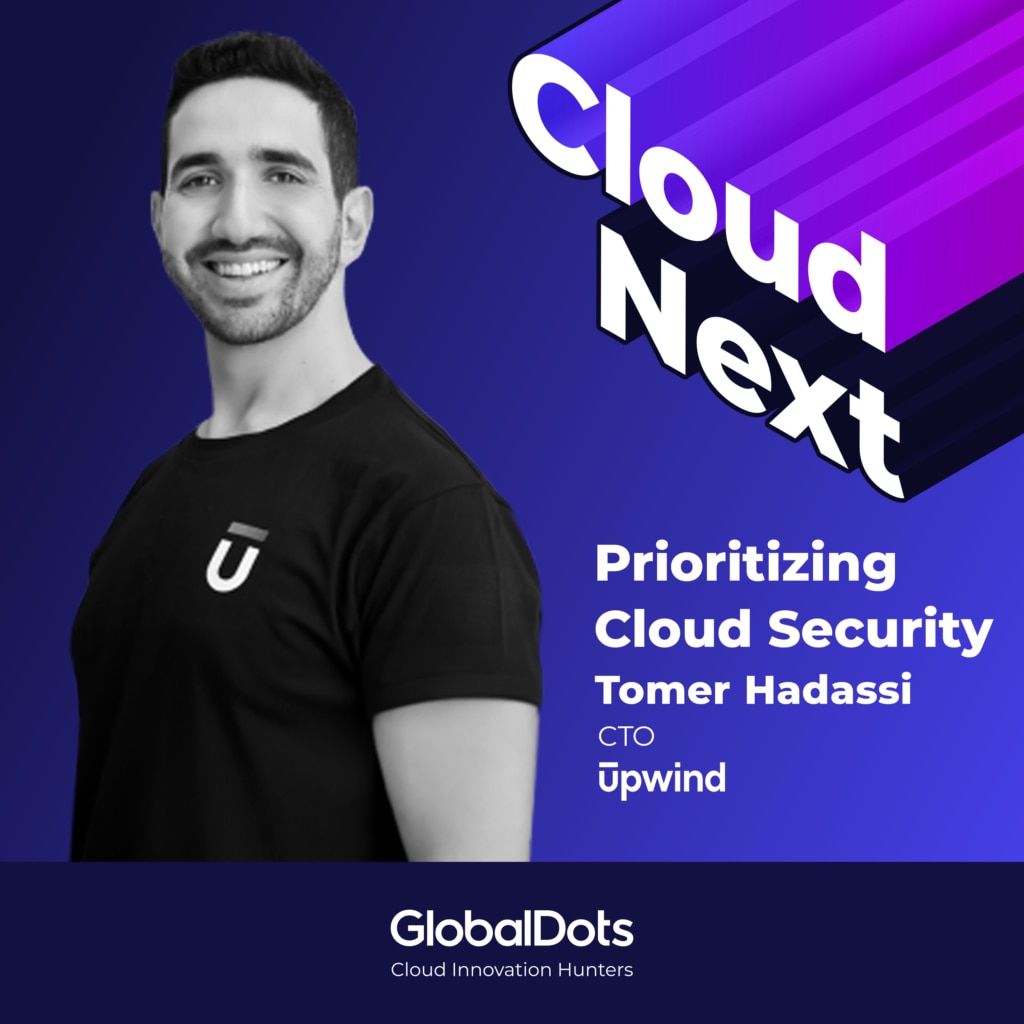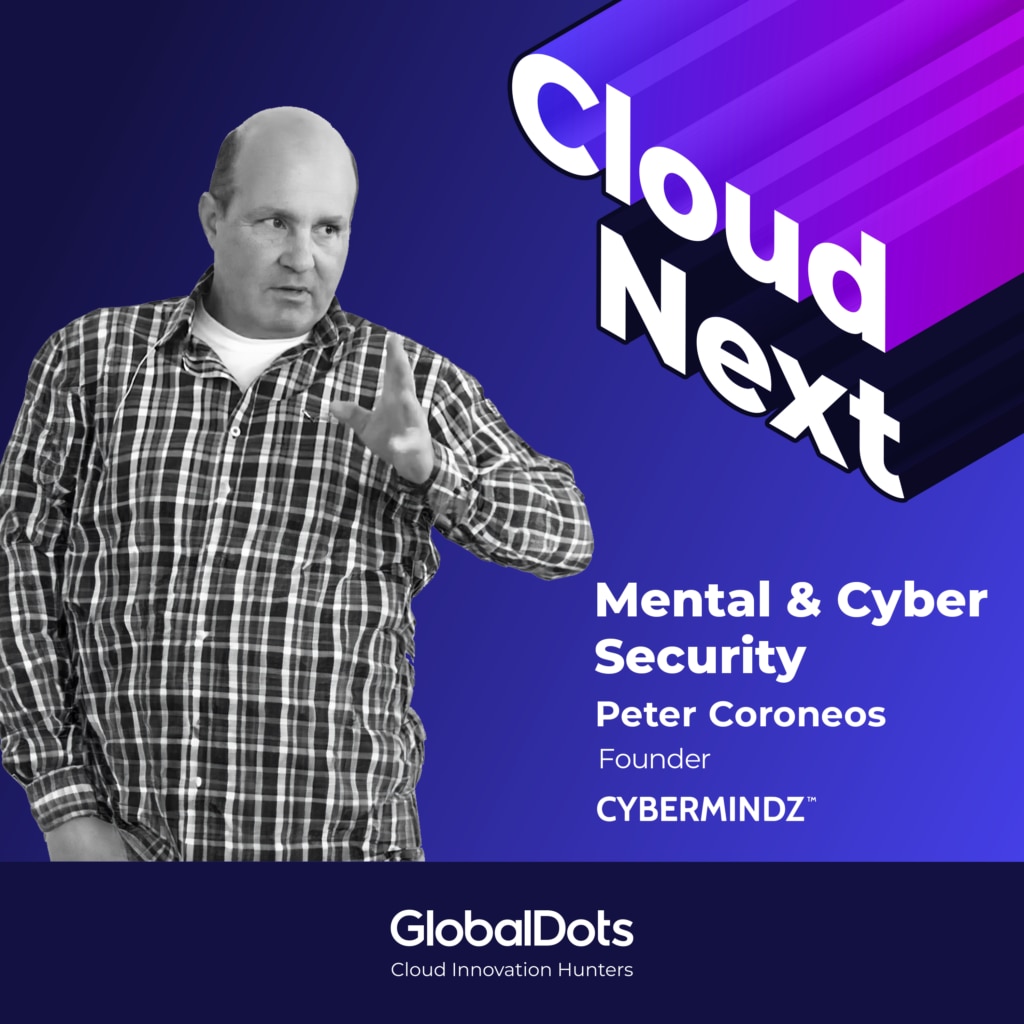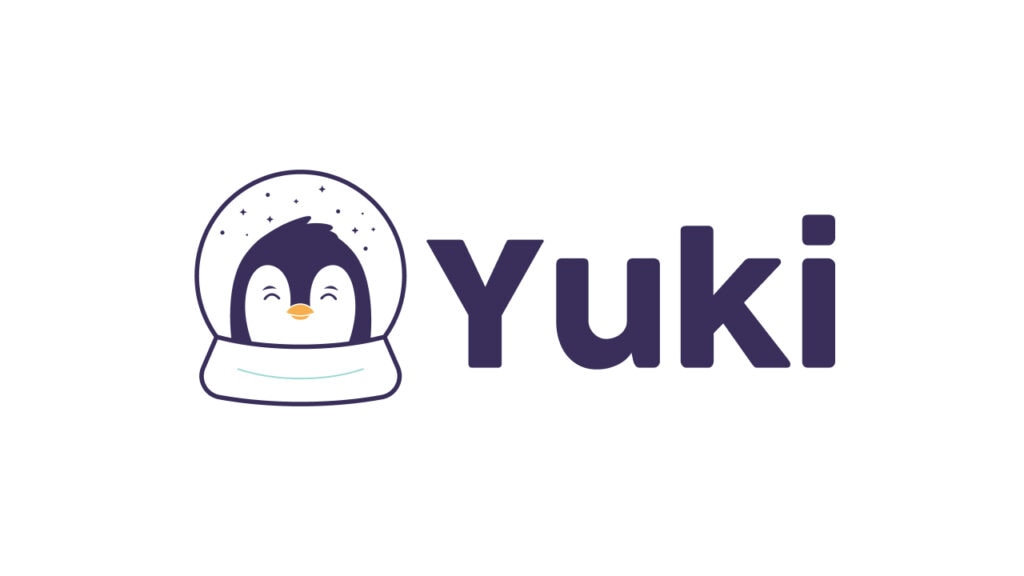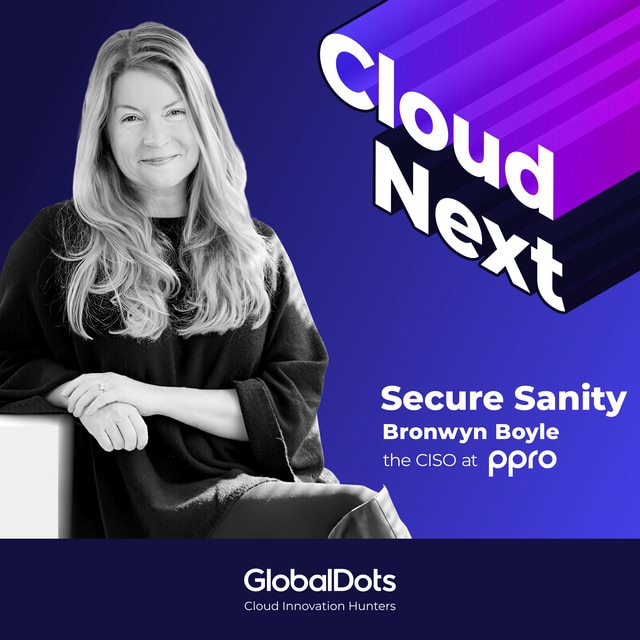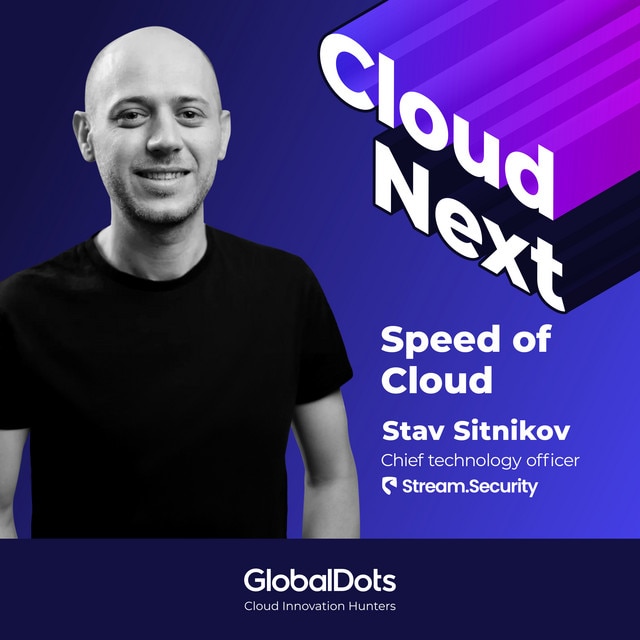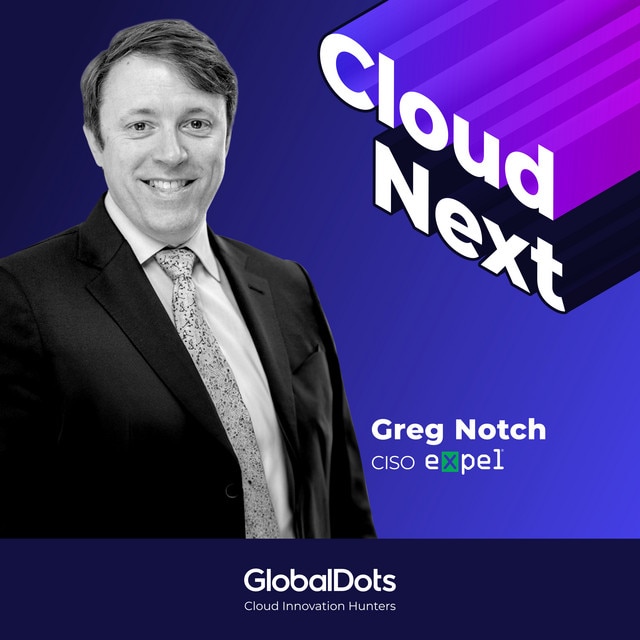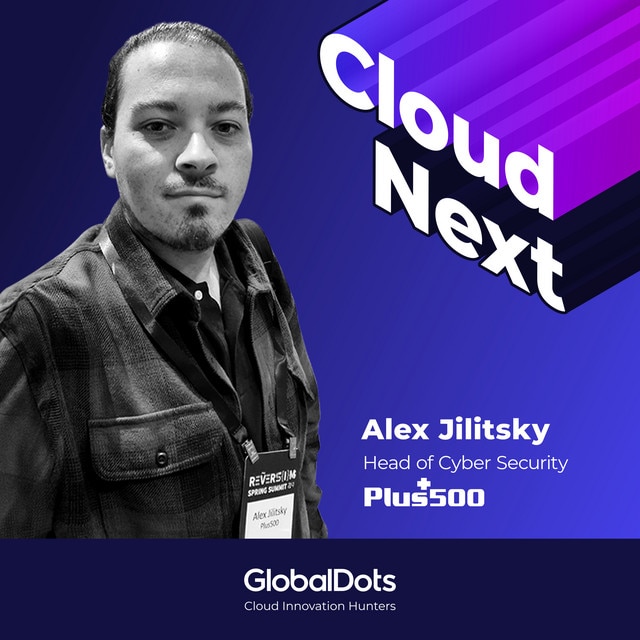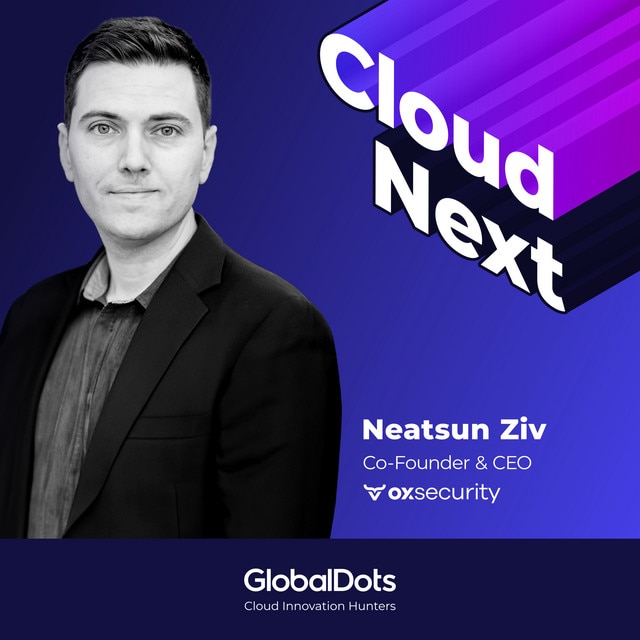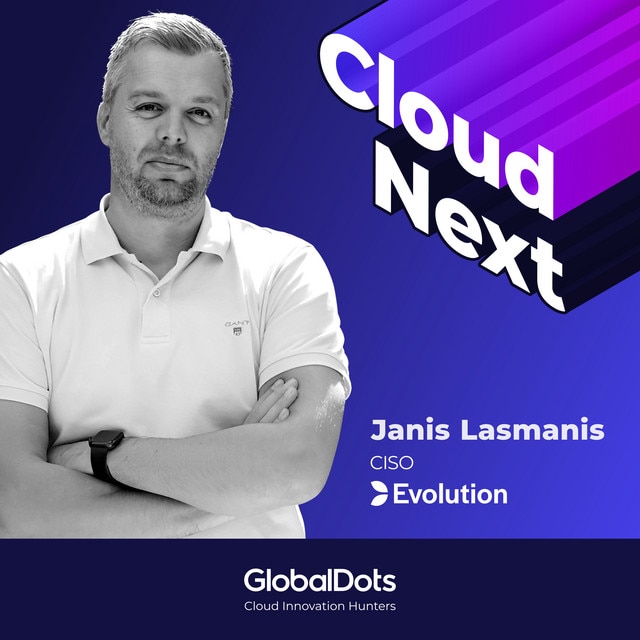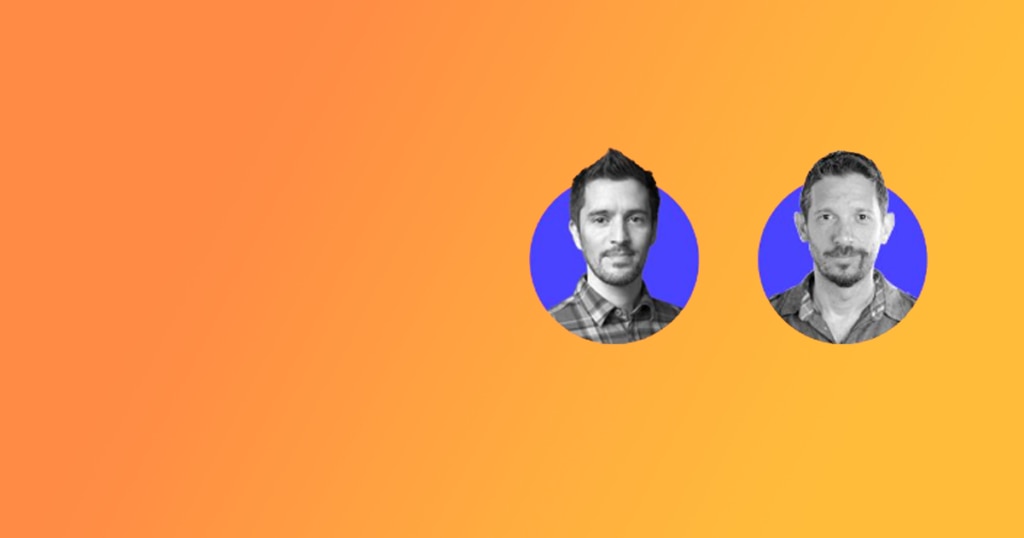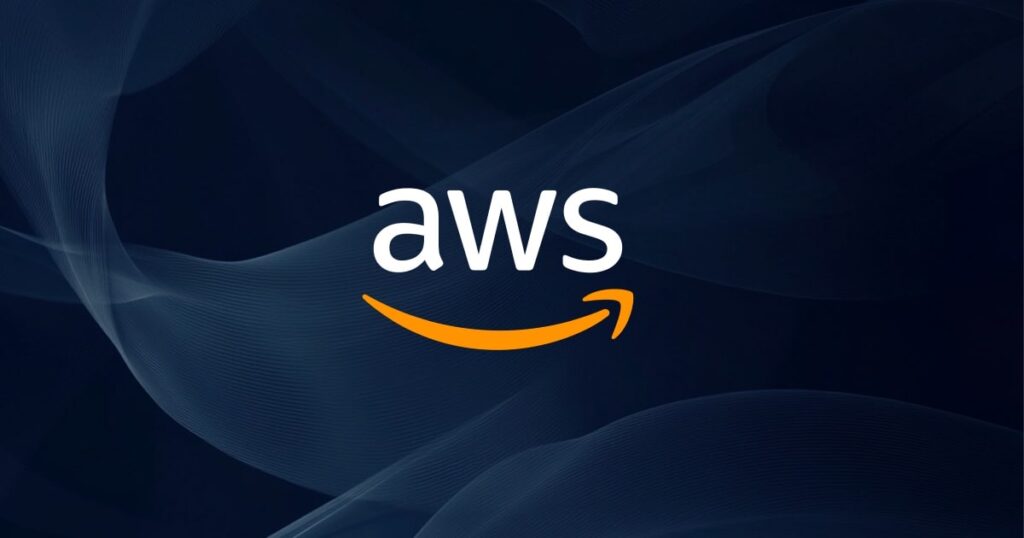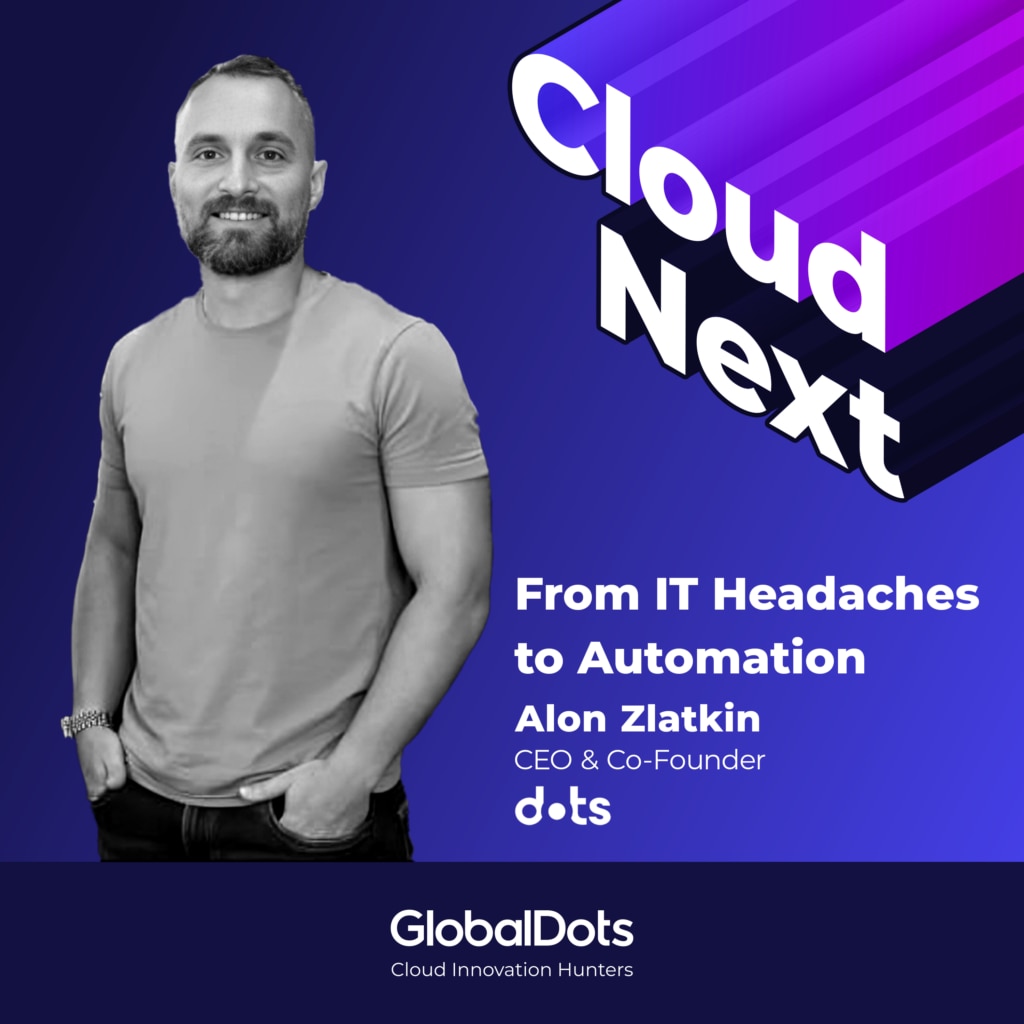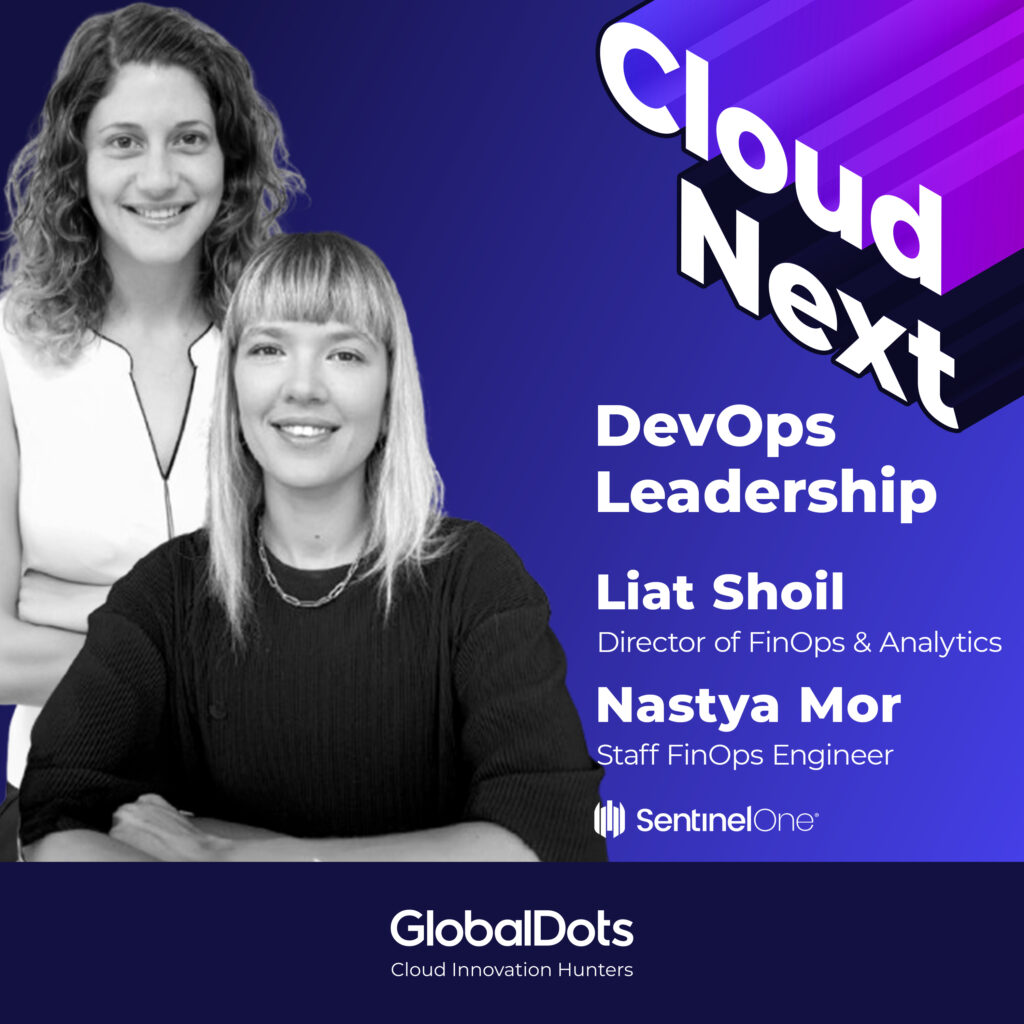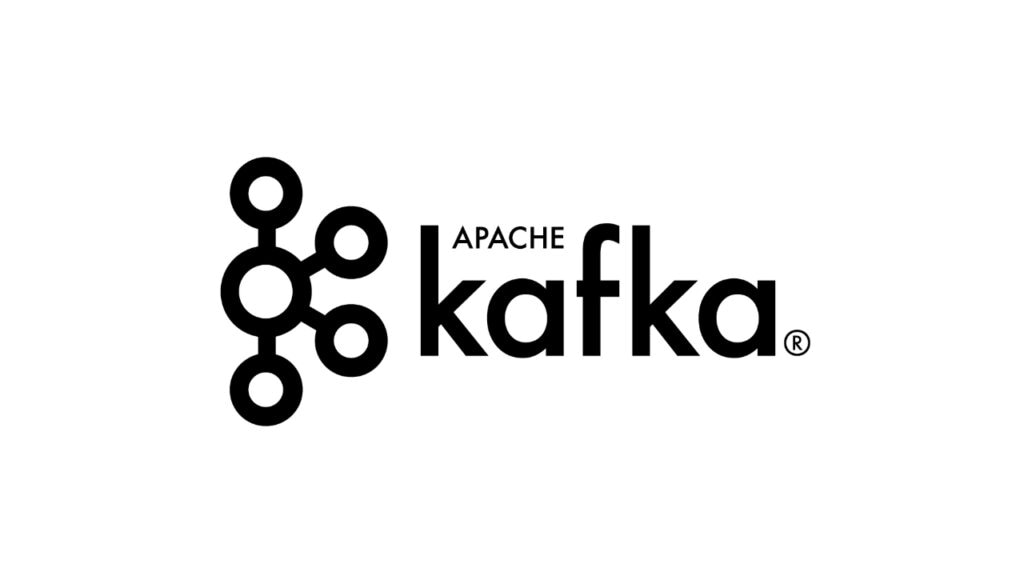Sign up to our Newsletter
This transcript was generated automatically by AI. If you find any mistakes, please email us.
Shlomo
0:00:00
If you look five, seven, 10 years from now, and you say how many network security appliances and their helpers, the cloud proxies, the Zscalers of the world, are going to be around? There's a feeling like a SASE is going to live side by side with appliances,
Shlomo
0:00:21
but the vast majority of appliances are going to go away, and SASE is going to be the replacement. I think that fact has not sunk in yet.
Tomer
0:00:32
Hello everyone, you're listening to Cloud Next, your go-to source for cloud innovation and leaders insight, brought to you by GlobalDots.
Ganesh
0:00:42
Our guest today needs no introduction,
Ganesh
0:00:44
but for those of you minding your business, hiding under a rock or just landing from a trip to the moon, let me give you a quick rundown. He was the co-founder of Checkpoint Software and Imperva, and in addition to being an experienced investor, he serves on the boards of several tech companies. Now serving as the CEO of Cato Networks, he continues to lead innovation in cloud and network security with decades of industry shaping experience. I'm Ganesh The Awesome, Solutions Architect at GlobalDots and we sent our producer,
Ganesh
0:01:15
Tomer Mulvidzon, to Cato's new offices to talk with the one, the only, the legendary Shlomo Kramer.
Tomer
0:01:20
Hello Shlomo.
Tomer
0:01:22
Usually before we start we ask what should people know about you, but in your case there's no need for an introduction, so I'm curious what is something people don't know about you and should know about you.
Shlomo
0:01:37
I guess the Checkpoint was not my first startup. I was a PC kid before there were PCs and my first startup was actually on one of the, even before I joined the army. Oh wow. Yeah, at high school.
Shlomo
0:01:53
A young entrepreneur. Exactly. Didn't go far, but it was there.
Tomer
0:02:02
It took you far eventually.
Shlomo
0:02:03
Yeah. I had a co-founder. We sold the product. Really?
Tomer
0:02:10
What was the product?
Shlomo
0:02:12
It was a development environment to, there was a UK-based Sinclair computer before the BC, so the Sinclair Quantum Leap. You go way back.
Tomer
0:02:28
Yeah, exactly. And let's talk a bit about the future now that we touched the past. As we approach the end of the year, we're in the middle of the decade. What are the most critical trends you see
Tomer
0:02:41
in cloud native security, you know, we should prep for?
Shlomo
0:02:45
Yeah, I think in general, in security, It's an industry, you know, how old? Like 35 years old, since the early 90s, or even slightly before that. It's an industry that's focused on the what, really on what attacks are you going to protect against?
Shlomo
0:03:07
What are your vulnerability? What is your security posture, what are you going to be able to detect and that created a lot of complexity, a lot of point products, each one addresses the what and it's natural because there's a lot of innovation in cyber security. There's a third person, a bad actor that innovates and forces that innovation to happen. And for all that focus on the what, the how was completely forgotten. How am I going to consume all these point products and how am I going to deliver a security
Shlomo
0:03:58
solution for the organization built on these products. And I think that the how and innovating in the how is going to be a critical element in a critical area in security in the next decade. Same as it was in data centers and applications in the last few decades, you know, Salesforce on the application side, SaaS applications, AWS, you know, cloud computing on the data center side. I think digitally transforming IT security
Shlomo
0:04:38
is going to be the next wave.
Tomer
0:04:40
We do have a third party with us, and maybe she'll explain to our viewers and our audience why their host, Ganesh The Awesome is not talking and it's me here. He was stranded on his way here so he's with us on the digital, on the web.
Ganesh
0:05:01
Pleasure to join you both and apologies I couldn't be there in person. Shlomo, it's personally a great honor to meet you. I have been using your technologies one way or another for at least two decades, I would say. I worked for a company as a network engineer when we were deploying a huge Checkpoint implementation. I remember being quite amazed at what a step change that was from having to look after legacy firewalls. You have my personal thanks that you reduced my hours of work and pain.
Ganesh
0:05:37
but on that note you seem to have a magic crystal ball for predicting what the market needs and I saw that with Checkpoint and you know we're also users of Cato and I was amazed at the step change of that. What's your secret for knowing what the market needs as we're like highly innovative and things are changing so quickly but you seem to be able to pick winners. Like, what's your secret there?
Shlomo
0:06:07
Not talk about the losers. No, I've kind of been really focused on a very specific area for the last 35 years, so I really developed some intuition and I usually deep understanding of the categories and the I a usually a deep understanding of the the category helps in having a
Shlomo
0:06:31
better bet rate it's interesting though that you a when you mentioned Checkpoint the point that you a raise was the fact that it a have to do see all the hours of labor and that's exactly what it was. Not necessarily the first firewall but it was the beginning of a new category of network
Shlomo
0:06:59
security of commercial firewalls that really changed the landscape by simplifying the operations What was once a very tedious project of days of professional services became a five-minute install of a floppy disk, if you remember what it was. And the technology installed, stateful inspection, supported not only the applications that the business used at the time, but also any future applications. So there was a completely new operational economics around
Shlomo
0:07:44
the implementing and managing a firewall. And there was a completely new velocity in terms of saying yes to the business, and allow the business to move forward to new applications, et cetera. And that's more or less what I did as an investor in Palo Alto. And exactly, which was the second generation,
Shlomo
0:08:18
the first generation was software-based firewalls, then appliances that kind of converged all these pieces of software into a single hardware box. And in 2015, the idea was that, hey, digital transformation required a new form factor, not an appliance.
Shlomo
0:08:41
That is not in the line of sight of home users and SaaS applications and cloud data centers. You really need something much more fluid, like a cloud network as a form factor. And that was the beginning of what is now recognized to be the third generation of network security called SASE. But all of them had the same idea, better operating economics, more business velocity and less hours of work for you.
Ganesh
0:09:19
Well, I wanted to touch on that because you said it was days of work. I think that's definitely Israel time. In Europe, definitely weeks of work. So yeah, that's too much pain spent looking at that.
Tomer
0:09:32
I must say something. It's a bit, I didn't plan to ask it, but I'm thinking as an end user, as somebody who came from, I come from a different background. I don't come from the tech world. I come from radio, from music. And while we had the pandemic, we moved to working from home and we started working with some security tools, Checkpoint and whatever. And most of the workers, and I was a manager there and my employees, their problem, the biggest problem was all of this security makes my life tougher.
Tomer
0:10:10
So how do you balance between the need for the most secure cloud, the most secure environment and the need for workers to just work?
Shlomo
0:10:22
Exactly. I came in with, I put it on the side, but I came in with an iPhone. If I didn't have an iPhone, I would have like a camera and a telephone and 10 other devices around my belt. I think that the key element is convergence,
Shlomo
0:10:42
real convergence into a platform. Convergence is not just having a single UI, but sharing the context of a single data. Security is a data problem, right? So it's sharing the same data and making joint decisions on kind of a broad data with good context. And cloud delivery is a second very important concept and the idea that you don't need to do the grunt work. I don't know if you ever saw the first presentation in 2006, I think Jeff Bezos gave it, about
Shlomo
0:11:30
what is AWS. And it's a simple three, four slide presentation. It says, okay, here's the idea. Here's the business application in the middle there's undifferentiated I don't remember the exact word but let's call it grunt work right all these IT staff that we and and then you need to iterate
Shlomo
0:11:53
because this business application changes over the time and so basically AWS takes all this grunt work right so it takes all these appliances, all these heavy lifting that you are talking about, and gives you back business outcomes. And that's the key of simplification through obstruction of a platform. And that's bridge the gap between, hey, there's more and more things to solve, but there's a limited amount of funding and people that they can put to the task.
Tomer
0:12:41
But there is about, you know, the threats are multiplying.
Shlomo
0:12:47
Yeah.
Tomer
0:12:47
And so is the solutions, right? So there's many solutions. You, as a product, you need about, I read somewhere, 60 different solutions. Is it really possible to merge everything?
Shlomo
0:13:01
That's the beauty of the platform, on both sides, both the customer and the vendor, because once you have the platform, you have all the data, and on the same data, you can do, for example, with Cato, you can do advanced threat prevention, but also CASB and RBI and many other functions.
Shlomo
0:13:25
And you don't need to deploy them and don't need to do anything other than check the box and say, okay, I want this as well. And it's not unique to Cato. On the endpoint, we've seen that happen with CrowdStrike, for example.
Shlomo
0:13:46
Same data set, and you saw the number of functions or add-ons that were provided with zero cost. Not zero cost, but zero effort to the customer over the years grow exponentially and the same is on the cloud platforms like Wiz has the same quality and we are doing that on the network side. The fact that we can do it is the other side of the platform because you say, okay, so here's a pure play CASB DLP player, it's been in the market for 12 years, how are you going to be able to replace that or offer something
Shlomo
0:14:30
that is competitive? You have smart engineers, but you have been doing this only for two years. So the right is that within two years, we'll be able to bypass the best pure play, a CASB DLP Because 80-90% of the engineering of a point product is already provided by the platform. And we need only to develop that 10-20% of function, specific function. So that really allows for the customer for a zero-cost deployment and for the vendor, velocity that is unparalleled
Shlomo
0:15:16
to any point product.
Ganesh
0:15:17
Would be interesting to touch on the all-in-one solution. So you mentioned Wiz and they're definitely, you can see them seeping over into cloud, code security now from cloud security. And you mentioned that Cato is highly focused on the network.
Ganesh
0:15:34
There's the dream of having the one pane of glass solution? What do you think that looks like in your vision and do you think it's even possible?
Shlomo
0:15:46
Yeah, I think that eventually when you look at IT infrastructure security, there are many other areas in security, identity and data security, it's built of known pillars, which are, I would say, the kind of the leading portfolio-based company, kind of the second generation type of, hey, I'm going to buy all these startups and I'm going to bundle them together into portfolio and here's Mr. Customer. This is the portfolio and you can integrate it or have somebody integrate it for you.
Shlomo
0:16:27
And Palo Alto, it's a network security, endpoint security, cloud security, and an XDR and management framework that is on top of these three pillars. In the next X years, choose the numbers, five, seven, 10 years,
Shlomo
0:16:47
you will find a platform company emerge that covers all these areas. You have a single solution that covers your entire footprint of IT infrastructure, whether it's cloud infrastructure, network infrastructure, or endpoint infrastructure.
Tomer
0:17:11
for the audience, the end users, the people like Ganesh, the solution architects, the CISOs, how do you imagine their day-to-day is affected by that?
Shlomo
0:17:23
It's elevated. I'm sure that in the days or weeks that Ganesh had, were freed up by the simplicity of Check Point, were dedicated to other areas in security or other areas that advanced, depends on the scope of responsibility, advanced digital transformation in the business. There's really shortage, there's like four million open positions right now
Shlomo
0:17:52
just in security, forget IT infrastructure in general. So that time is sorely needed and the ability to say yes to the business. Yes, we can. One customer bought a solution and deployed it globally to 150 locations. And then a new CEO and CEO came on board and there's a new business strategy of M&A and you need to do three M&As a year with the same staff and the same budget and to say yes to that
Shlomo
0:18:38
that's the benefit of the platform era. Sounds like a dream. It's not a dream. We have thousands of customers that for them it's an everyday reality.
Tomer
0:18:57
Making people's dream a reality. Yes, Ganesh.
Ganesh
0:18:59
Yeah, you mentioned that security is a data problem and I totally agree with that and eventually there will be some platform that pulls all of these things together and I'm not convinced it will even be a security platform because it is just a data problem. So I don't think the company that does it will need to be a security company. But like you said, maybe five years, seven years down the line. Until that point, that breadth and depth of services that CISOs and SecOps people have to manage,
Ganesh
0:19:33
what do you think is a good place to focus your learning and your energy until we get to this Shambhala heaven state of the all in one?
Shlomo
0:19:45
I think SASE is an excellent place to start. Network security and networking and converging that and that's where for example Gartner that asked themselves the same question because I think Gartner has the same view of the importance of the platform as the future. And that is the key area that they've defined. That is the future of networking and network security and an area where the industry needs to focus on.
Shlomo
0:20:18
And that's an area that has traditionally was most left behind. And there's a good, and has been that, how should I say it, most rigid and most conservative and farthest away from the digital transformation. And there's a good reason for that, because if you're a SaaS application,
Shlomo
0:20:42
like Salesforce, and you're down for 10 minutes, then okay, then salespeople can't put in their data for 10 minutes, and a sales executive can't get the reports for 10 minutes, but life goes on. Now, if you're a manufacturer, and your network is down for 10 minutes,
Shlomo
0:21:07
that's a huge, huge, huge thing. So really, robustness and stability and the ability to make sure that the innovation is not going to in any way dent the availability, cause this area to be the farthest away. And SASE is really a big step forward.
Tomer
0:21:33
Moving on to a different, a bit of a different subject, but it might be actually the same because we're seeing partnerships becoming key factors in driving growth and innovation in the industry. We are partners and from your perspective how do strategic partnerships influence the success of companies in cloud security space and more importantly what is the value this
Shlomo
0:21:59
brings to the customer? Well customers come in all sorts of flavors. There are customers who want to do everything themselves and do it yourself, and there are customers that want everything to be managed by a third party, and there are a lot of customers that are somewhere in the middle. They are looking for a partnership in which they can have a third party do some of the work and they would do the rest of the work.
Shlomo
0:22:39
You can define the borderlines in a thousand different ways. The great thing about Cato is that it allows the entire spectrum to exist and allow various types of partners that can play in different parts of this spectrum work with us. So we've got everything from agents that are just, you know, have a relationship with the customer,
Shlomo
0:23:09
consulting them and pointing them away all the way to telcos that are fully managing the customer and doing everything for the customer. We've got everything in between.
Ganesh
0:23:28
And speaking from someone who did come from the old school of having to manage not only the network equipment but also a separate MPLS line. Having to manage multiple vendors just becomes a complete nightmare. And even, you know, multiple, in the old world, multiple firewalls. So you had to understand a Nokia and a Checkpoint and a Cisco and all these other things. And the simplification of that for the, on the user side makes total sense.
Ganesh
0:23:59
On the market in general, I wonder if you see any other major mergers that will come to us. So more recently you see things like Aquasec and Orca emerging and that seems like quite an obvious bit of synergy there with the companies, but is there something less obvious that you
Shlomo
0:24:18
think that might happen with SASE right now. There's no vendors that are not single vendor SASEs anymore. I look at the one platform that was built from SASE and the vast majority of the, which is Cato, and the vast majority of other players are second generation, right? The appliance vendors that were told,
Shlomo
0:24:59
hey, your hundred billion dollar a year install base, which is around what's the network security market sizes, is going to move to the cloud. I'm not sure what's going to happen down the road. Right now, everybody's trying to reformat their DNA as an organization and re-architect their solution to be a cloud. It's not easy at all. We'll see who survives this and who on their own and who with the
Shlomo
0:25:38
help of others.
Ganesh
0:25:39
I have a sneaky suspicion that you will be the first one there, but let's see how it
5
0:25:44
plays out.
Shlomo
0:25:45
I don't want to tell you how old am I, but perhaps that's, I believe that SASE is the next 20 years. So I guess that's the third and last wave that I participate in, at least on the operational
Shlomo
0:26:02
side.
Ganesh
0:26:02
So you'll be 41 when SASE is finished.
Shlomo
0:26:06
For the 20th year.
Tomer
0:26:10
Giving the constant evolution of threats. And I want to talk about you as a leader now. How do you maintain resilience as a leader with all these changes? Are there any leadership principles, habits, that our audience could learn?
Shlomo
0:26:28
When I look at the three startups that I was involved in as an operationally, you know, Checkpoint, Imperva, then Capsula, and now Cato, each one of them required a different type of resiliency, right? Checkpoint was very much, oh my God, the market is coming, how are we going to be able to scale this fast enough and can we run with the bulls and not getting run over?
Shlomo
0:27:06
That requires a lot of resiliency. When we signed the contract with our first distribution contract with a company called Sun Microsystem, which was then huge. And we were three people. So how do you cope with that? Second company had a completely different type of resiliency. That was, I would say, one of the first data security company two years before PCI, the disclosure law in California, which was the first disclosure law.
Shlomo
0:27:47
There was no notion of data security back then. And we were too early to the market, which is a very dangerous illness for startups. And it took a lot of resiliency to kind of keep the company together, keep the employees, keep the morale. And then PCI came out and with one quarter, the market happened and everything was,
Shlomo
0:28:14
and then we took it public and life was great. And with Cato, when we came to investors at the beginning, we had good reputation as company builders and product builders. And yet some said, hey, this is a very ambitious idea, which means you're crazy, you can't build it, go away.
Shlomo
0:28:37
It was a completely huge engineering undertaking. Because as I told you, networks has to be five nines, resilient, and converging them with security that has to be super dynamic, changes all the time, and creating a global network, sort of like an over-the-top telco with security stack. Today we have more than 90 pubs around the world, all of them serving thousands of customers with users at the same time, that looked crazy to people.
Shlomo
0:29:15
More than that, more than the size of this task, the fact that anything you would do, any product, there's a known rule that only version 3 really works. Right? I don't know. It's a Microsoft man, but it's actually true, which is again acceptable if you're an application, but if you're a network and you're in version 2,
Shlomo
0:29:47
you get a call from the CIO that you were stupid enough to give your mobile number to at 3 a.m. in the morning saying, what the hell is going on? It's a very difficult execution. So I would say that there is an execution resiliency at Cato in the first years of can we make it? You know, were we right or the VCs that chose not to invest in us were right?
Shlomo
0:30:20
We need resiliency to get to the other side of the river. I would call it execution resiliency. So different startups poses different types of challenges to the founders and the employees. There's a lot to cope with when you decide. So my main advice is really want it if you are starting a startup because it's not going
Shlomo
0:30:57
to be easy. Commit. Commit, yeah.
Ganesh
0:31:00
You talked about the sort of technical resiliency and company resiliency, but I'm really interested to know on a personal level, you know that bad guys are trying to look for vulnerabilities all the time. Eventually, they find them. It's just part of life in the software business. Being so contactable or being the figurehead of this organization, it could get splashed
Ganesh
0:31:24
across the news channels. You see breaches all the time in the news. How do you manage that in your personal life?
Shlomo
0:31:33
I don't give somebody a bad idea. you know i think that gives them a debate the idea yeah you know that's a it's a it's a red queen race right you have to run as fast as uh... you can in order to stay in the same place that's exactly what you're saying right
Shlomo
0:31:55
and uh... i guess if you want fast enough uh... you don't have the time to look over your shoulder and uh... and uh... that's uh...
Tomer
0:32:04
As they say when you race, I was a swimmer, so I used to race, and the coaches would always say, don't look at the competitors, just look ahead.
Shlomo
0:32:16
Exactly.
Tomer
0:32:17
Ganesh, I wanted to actually ask you, because you mentioned at the beginning, telling people about Cato, and as someone who meets customers, how is it today?
Ganesh
0:32:28
We took a little while to find traction because of the aforementioned reason that people were embedded in their old technology mindsets. Probably the least innovative place in tech was networking for a good long time. The people you're trying to sell to, if you're not talking to the right persona, you're talking to the guy who owns that network switch. And for people, you know, most people probably know that these are highly certified environments.
Ganesh
0:33:02
You know, you have to do lots of exams to become a Cisco certified network engineer and all these other things. So you're kind of, in some way, you're bringing innovation, which scares them because they're not, you know, they're completely used to owning their own network and then at the same time you're a little bit threatening them and stepping on their toes because what used to require a Cisco certified engineer or Juniper engineer or whatever it was, suddenly you can have a service desk level.
Ganesh
0:33:31
I would just say, I would say, I would consider myself in the next statement, mediocre engineers are able to actually drive this thing. So once you get past the initial emotions, and that just takes time and it takes some customers on the platform to convince people that, hey, this thing really does work and it really does fly.
Ganesh
0:33:53
Now it's like magic. Every organization now has a SASE or a Zero Trust project in flow. Those that don't have one in flow it's only because they didn't budget it yet and we do a lot of work with airlines and as the recent CrowdStrike outage showed that airlines are some of the most behind organizations of all. Even these guys are now asking us about Zero Trust and SASE type projects. So the appetite has grown and grown and I don't think we even saw the beginning of it
Ganesh
0:34:31
yet to be honest. I think it's only really just begun. The technology has matured but the appetite is in startup mode I would say.
Shlomo
0:34:39
If I can pick up on that and say there's now a magic quadrant, Cato is the leader. leader essentially all over the year I think it's a number three priority on the CIO list based on Gardner survey I think GenAI number one and forget what number two is and it's almost like it's you know the hype cycle it's almost like it's kind of reached a mainstream in a way but I think people still do not fully grasp what SASE really is. It's a simple question.
Shlomo
0:35:25
If you look five, seven, ten years from now and you say, how many network security appliances the cloud proxies, the Zscalers of the world, are going to be around. There's a feeling like a SASE is going to live side by side with appliances. And I'm saying that, you know,
Shlomo
0:35:50
seven years from now, my crystal ball. I would say that 80 to 90% of firewalls, not only in the branch offices, but also in the campuses and in the edge of the data center. Perhaps inside the data center there's a huge firewall with east-west traffic segmentation or something
Shlomo
0:36:10
like that that will not be replaced. But the vast majority of appliances are going to go away and SAS is going to be the replacement. I think that fact has not sunk in yet but it's absolutely true that it's kind of mainstream that everybody is going in that direction.
Ganesh
0:36:38
Ganesh, you got your crystal ball eventually. The prophecy is here. This one we definitely knew about already, being as though the company is quite mature mature but I totally agree that essentially the old physical devices are going to be the BlackBerry servers of today basically. You know, nobody wants a BlackBerry email server anymore. That's the way that the appliances are going.
Tomer
0:37:04
But I gotta ask, and we talked about organizations not being aware, in your experience what are some of the most common mistakes you see organizations make when it comes to cloud security? What steps
Shlomo
0:37:17
should they avoid? I don't know if I call it mistakes but difficulties can we call learning curves, can we call it difficulties? Some of the organizations simply have difficulties in coping with the pace of security. I'll give you an example, so even the best appliance vendors like Fortinet, but definitely if you go down to SonicWall or other players have lots and lots of vulnerabilities
Shlomo
0:37:49
in their solution, which is fine. Everybody has vulnerabilities and they provide patches and they publish them and they have all this cycle. But if I've got a thousand now locations, because I used to have many less, but my employees got tired of backhauling to the data center in order to get to the internet close to their office.
Shlomo
0:38:13
So I've got now appliances in all these locations, and now I need to patch all of them. It's a huge amount of work and it may take me months to do that or I may never do it at all. And that's a huge window of opportunity for the attackers. And the same goes for remote access, say, Ivanti and Citrix and all sorts of, every appliance, what's up.
Shlomo
0:38:50
So I think that attempt in the cloud era to hold on to what seems to be the more traditional and you know, it's closer to what we know so it must be safer. That's the type of mistake because it's close to what you know
Shlomo
0:39:07
but in the cloud era, it's much less safe. For example, a SASE solution like Cato would find the vulnerability, patch the vulnerability, test it silently in the cloud and make it available to all customers
Shlomo
0:39:28
without them doing anything at all, zero touch. I think Log4Shell were the fastest response, I think less than 24 hours since it was discovered.
Tomer
0:39:43
It is a life problem, people thinking it's better the devil you know.
Shlomo
0:39:48
Exactly, better the devil you know is absolutely not correct in security when it comes to generational shifts like the cloud.
Ganesh
0:39:59
I want to know how you stay fresh, Shlomo? So you, we talked about your crystal ball and you managed to stay ahead of the game, but anything that you consume, podcasts or blogs or books that you'd recommend or what's,
Shlomo
0:40:14
how do you keep your finger on the pulse? My best way of keeping my finger on the pulse And between startups, I invested more like a VC because I had more time and could sit on the boards and whatnot. But I still, even at this point, write small checks, passive checks to startups.
Shlomo
0:40:35
And there's a constant flow of ideas and young entrepreneurs, and it's intellectually stimulating and broadening my perspective. And beyond that, I have a long list of sources of information I track daily. But I would say that young entrepreneurs and mentoring them is the best way to stay current.
Tomer
0:41:12
Ganesh, the actual answer is the crystal ball, but he can't say it, so I'll say it myself.
Ganesh
0:41:17
We like to call it the DeLorean question. It was actually, credit to that goes to Greg Notch, who's the CISO of X-Belt, who branded it that. With all your experience and your achievements, if you could return to the start of your career, what professional advice would you give to your younger self?
Shlomo
0:41:35
I would not give any advice to myself because there's nothing better than being naive and inexperienced and having all the passion in the world that comes with it. I would never touch and spoil it. Wow, that's the best answer I think we got.
Tomer
0:41:54
It's definitely the most poetic we ever had, that's for sure. Beautiful, Shlomo, thank you very much for your time for your answers it was interesting and you were very kind with your knowledge and I
Ganesh
0:42:10
think our audience will gain a lot from this. Genuine it was a actually was an honor to meet you as someone who's been using your tech for like 20 years so shame I didn't get to shake your hand in person although actually I'm a hugger so I would have hugged you but I'll collect it another time. This episode was produced and edited by Daniel Ohana and Tom O'Morvinson. I'm Ganesh The Awesome.
Ganesh
0:42:32
And if you're ready to deep dive and start transforming the way you approach cloud practices and cybersecurity strategies, then the team and myself at GlobalDots are at your disposal. We are cloud innovation hunters, and we search the globe looking for the future tech solutions so we can bring them to you. We've been doing it for over 20 years, it's what we
Ganesh
0:42:51
do, and if I don't say so myself, we do pretty well. So have a word with the experts, don't be shy, and remember that conversations are always for free.

